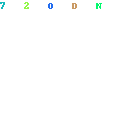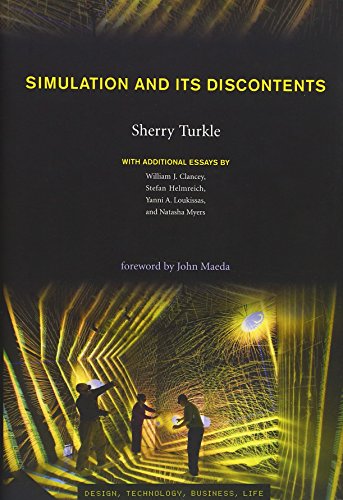We spent many hours on research to finding sherry turkle, reading product features, product specifications for this guide. For those of you who wish to the best sherry turkle, you should not miss this article. sherry turkle coming in a variety of types but also different price range. The following is the top 12 sherry turkle by our suggestions:
Reviews
1. The Second Self: Computers and the Human Spirit
Feature
Used Book in Good ConditionDescription
Examines the effect of the new "computer culture" on both children and adults and theorizes that computers are responsible for the new wave of mechanical determinism and a revival of mysticism and spirituality2. Falling for Science: Objects in Mind (MIT Press)
Description
Passion for objects and love for science: scientists and students reflect on how objects fired their scientific imaginations.3. Reclaiming Conversation: The Power of Talk in a Digital Age
Feature
Penguin BooksDescription
Renowned media scholar Sherry Turkle investigates how a flight from conversation undermines our relationships, creativity, and productivityand why reclaiming face-to-face conversation can help us regain lost ground.
We live in a technological universe in which we are always communicating. And yet we have sacrificed conversation for mere connection.
Preeminent author and researcher Sherry Turkle has been studying digital culture for over thirty years. Long an enthusiast for its possibilities, here she investigates a troubling consequence: at work, at home, in politics, and in love, we find ways around conversation, tempted by the possibilities of a text or an email in which we dont have to look, listen, or reveal ourselves.
We develop a taste for what mere connection offers. The dinner table falls silent as children compete with phones for their parents attention. Friends learn strategies to keep conversations going when only a few people are looking up from their phones. At work, we retreat to our screens although it is conversation at the water cooler that increases not only productivity but commitment to work. Online, we only want to share opinions that our followers will agree with a politics that shies away from the real conflicts and solutions of the public square.
The case for conversation begins with the necessary conversations of solitude and self-reflection. They are endangered: these days, always connected, we see loneliness as a problem that technology should solve. Afraid of being alone, we rely on other people to give us a sense of ourselves, and our capacity for empathy and relationship suffers. We see the costs of the flight from conversation everywhere: conversation is the cornerstone for democracy and in business it is good for the bottom line. In the private sphere, it builds empathy, friendship, love, learning, and productivity.
But there is good news: we are resilient. Conversation cures.
Based on five years of research and interviews in homes, schools, and the workplace, Turkle argues that we have come to a better understanding of where our technology can and cannot take us and that the time is right to reclaim conversation. The most humanand humanizingthing that we do.
The virtues of person-to-person conversation are timeless, and our most basic technology, talk, responds to our modern challenges. We have everything we need to start, we have each other.
4. The Glass Cage: How Our Computers Are Changing Us
Feature
The Glass Cage How Our Computers Are Changing UsDescription
At once a celebration of technology and a warning about its misuse, The Glass Cage will change the way you think about the tools you use every day.
In The Glass Cage, best-selling author Nicholas Carr digs behind the headlines about factory robots and self-driving cars, wearable computers and digitized medicine, as he explores the hidden costs of granting software dominion over our work and our leisure. Even as they bring ease to our lives, these programs are stealing something essential from us.Drawing on psychological and neurological studies that underscore how tightly peoples happiness and satisfaction are tied to performing hard work in the real world, Carr reveals something we already suspect: shifting our attention to computer screens can leave us disengaged and discontented.
From nineteenth-century textile mills to the cockpits of modern jets, from the frozen hunting grounds of Inuit tribes to the sterile landscapes of GPS maps, The Glass Cage explores the impact of automation from a deeply human perspective, examining the personal as well as the economic consequences of our growing dependence on computers.
With a characteristic blend of history and philosophy, poetry and science, Carr takes us on a journey from the work and early theory of Adam Smith and Alfred North Whitehead to the latest research into human attention, memory, and happiness, culminating in a moving meditation on how we can use technology to expand the human experience.
---5. It's Complicated: The Social Lives of Networked Teens
Feature
Yale University PressDescription
What is new about how teenagers communicate through services such as Facebook, Twitter, and Instagram? Do social media affect the quality of teens lives? In this eye-opening book, youth culture and technology expert danah boyd uncovers some of the major myths regarding teens' use of social media. She explores tropes about identity, privacy, safety, danger, and bullying. Ultimately, boyd argues that society fails young people when paternalism and protectionism hinder teenagers ability to become informed, thoughtful, and engaged citizens through their online interactions. Yet despite an environment of rampant fear-mongering, boyd finds that teens often find ways to engage and to develop a sense of identity.
Boyds conclusions are essential reading not only for parents, teachers, and others who work with teens but also for anyone interested in the impact of emerging technologies on society, culture, and commerce in years to come. Offering insights gleaned from more than a decade of original fieldwork interviewing teenagers across the United States, boyd concludes reassuringly that the kids are all right. At the same time, she acknowledges that coming to terms with life in a networked era is not easy or obvious. In a technologically mediated world, life is bound to be complicated.
6. The Shallows: What the Internet Is Doing to Our Brains
Feature
Finalist for the Pulitzer PrizeDescription
"The Shallows" is Nicholas Carr's best-selling exploration of the Internets intellectual and cultural consequences. Part intellectual history, part popular science, and part cultural criticism, "The Shallows" sparkles with memorable vignettes even as it plumbs profound questions about the state of our modern psyche.7. Simulation and Its Discontents (Simplicity: Design, Technology, Business, Life)
Description
How the simulation and visualization technologies so pervasive in science, engineering, and design have changed our way of seeing the world.
Over the past twenty years, the technologies of simulation and visualization have changed our ways of looking at the world. In Simulation and Its Discontents, Sherry Turkle examines the now dominant medium of our working lives and finds that simulation has become its own sensibility. We hear it in Turkle's description of architecture students who no longer design with a pencil, of science and engineering students who admit that computer models seem more "real" than experiments in physical laboratories.
Echoing architect Louis Kahn's famous question, "What does a brick want?", Turkle asks, "What does simulation want?" Simulations want, even demand, immersion, and the benefits are clear. Architects create buildings unimaginable before virtual design; scientists determine the structure of molecules by manipulating them in virtual space; physicians practice anatomy on digitized humans. But immersed in simulation, we are vulnerable. There are losses as well as gains. Older scientists describe a younger generation as "drunk with code." Young scientists, engineers, and designers, full citizens of the virtual, scramble to capture their mentors' tacit knowledge of buildings and bodies. From both sides of a generational divide, there is anxiety that in simulation, something important is slipping away. Turkle's examination of simulation over the past twenty years is followed by four in-depth investigations of contemporary simulation culture: space exploration, oceanography, architecture, and biology.
8. Alone Together: Why We Expect More from Technology and Less from Each Other
9. Alone Together by Sherry Turkle (2013-02-07)
10. Life on the Screen: Identity in the Age of the Internet
Feature
Life on the Screen Identity in the Age of the InternetDescription
Life on the Screen is a book not about computers, but about people and how computers are causing us to reevaluate our identities in the age of the Internet. We are using life on the screen to engage in new ways of thinking about evolution, relationships, politics, sex, and the self. Life on the Screen traces a set of boundary negotiations, telling the story of the changing impact of the computer on our psychological lives and our evolving ideas about minds, bodies, and machines. What is emerging, Turkle says, is a new sense of identity- as decentered and multiple. She describes trends in computer design, in artificial intelligence, and in people's experiences of virtual environments that confirm a dramatic shift in our notions of self, other, machine, and world. The computer emerges as an object that brings postmodernism down to earth.11. Evocative Objects: Things We Think With (MIT Press)
Feature
Evocative ObjectsDescription
Autobiographical essays, framed by two interpretive essays by the editor, describe the power of an object to evoke emotion and provoke thought: reflections on a cello, a laptop computer, a 1964 Ford Falcon, an apple, a mummy in a museum, and other "things-to-think-with."
For Sherry Turkle, "We think with the objects we love; we love the objects we think with." In Evocative Objects, Turkle collects writings by scientists, humanists, artists, and designers that trace the power of everyday things. These essays reveal objects as emotional and intellectual companions that anchor memory, sustain relationships, and provoke new ideas.These days, scholars show new interest in the importance of the concrete. This volume's special contribution is its focus on everyday riches: the simplest of objects -- an apple, a datebook, a laptop computer--are shown to bring philosophy down to earth. The poet contends, "No ideas but in things." The notion of evocative objects goes further: objects carry both ideas and passions. In our relations to things, thought and feeling are inseparable.
Whether it's a student's beloved 1964 Ford Falcon (left behind for a station wagon and motherhood), or a cello that inspires a meditation on fatherhood, the intimate objects in this collection are used to reflect on larger themes -- the role of objects in design and play, discipline and desire, history and exchange, mourning and memory, transition and passage, meditation and new vision.In the interest of enriching these connections, Turkle pairs each autobiographical essay with a text from philosophy, history, literature, or theory, creating juxtapositions at once playful and profound. So we have Howard Gardner's keyboards and Lev Vygotsky's hobbyhorses; William Mitchell's Melbourne train and Roland Barthes' pleasures of text; Joseph Cevetello's glucometer and Donna Haraway's cyborgs. Each essay is framed by images that are themselves evocative. Essays by Turkle begin and end the collection, inviting us to look more closely at the everyday objects of our lives, the familiar objects that drive our routines, hold our affections, and open out our world in unexpected ways.
12. Alone Together by Sherry Turkle (2011-02-03)












